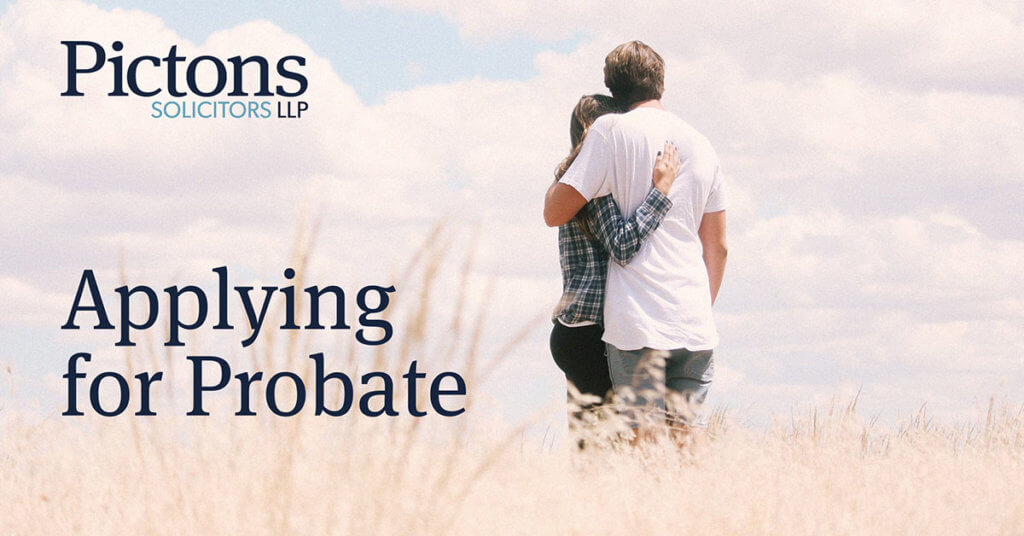Applying for Probate – what you need to consider

When someone dies it often falls to grieving family members to handle their financial affairs which can be both complex and exhausting. If you have recently lost a loved one you may be wondering where to start, Pictons have a wealth of experience and experts at hand who can help to ease the burden by handling all aspects of the process for you at a time when you might need to grieve or deal with other family members.
You may have questions about the probate process, how it works, how much it costs, the law and your legal obligations.
What is probate?
Probate is the legal right to deal with someone’s estate and distribute to their beneficiaries. A person’s estate includes property, money, debt and the deceased’s possessions. There is a legal process to obtain a Grant of Probate and no financial plans should begin until probate is in place such as marketing a property for sale
Only certain people can apply for probate depending on if there is a will or not.
If there is a will the named executors can apply but if there is no will (referred to as ‘intestacy’) the law stipulates who can apply .
The process can be quite lengthy and complicated and involves notifying banks, building societies, relevant government departments (such as the council and HMRC) of the person’s death, closing any accounts they hold, tallying up their assets and liabilities and thereafter distributing their assets.
Depending on the value of the estate, there may well be inheritance tax liabilities to consider.
It is possible for a law firm to act either as executors of the Will, or on behalf of other named executors and deal with putting the terms of the Will into effect or administering the estate on intestacy.
The following FAQ’s may be helpful.
How many comparative property valuations do we need to get?
Three Estate Agents valuations should be obtained or one valuation by a Chartered Surveyor.
If we decide to commission work on the house (like decoration/garden work) can we deduct the cost from any cash funds in the estate?
Receipts must be kept for any such payments and the Executors can authorise reasonable reimbursement after the Grant of Probate has been issued.
Can we dispose of things like clothes and jewellery before we get the Grant of Probate?
General day to day items of minimal value can be disposed of prior to obtaining Probate by agreement by all Executors and could for example be given to charity.
Can we distribute bequests detailed in the Will (for example furniture items) before the Grant is received?
If there are items gifted in the Will then they should be retained by the Executors and distributed after Probate is granted.
If we get things professionally valued, can we deduct any charges incurred from the estate before distribution?
Receipts for the valuation costs must be retained and the fees can be reimbursed from the estate prior to distributions being made.
Do we have to get proper receipts for everything we do, to give a clear paper trail of our actions – in case there’s any later dispute?
Yes.
Would it be wise to open a separate bank account for any/all transactions to do with the estate?
Yes as this keeps a clear trail and will make things easier when the funds are later distributed to the beneficiaries.
Can any bills be paid from the deceased’s accounts prior to Probate being granted.?
Once the account holder has died, their accounts are frozen but funds can be released to pay for funeral expenses and Inheritance Tax.
For any information or advice about applying for probate or regarding the administration of estates generally, please contact Pictons’ Wills and Probate department on
T: 01582 878549